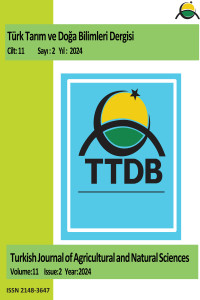Research Article
Issue Reviewers





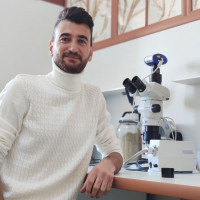


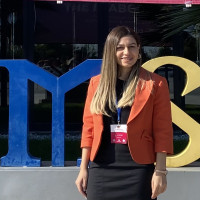
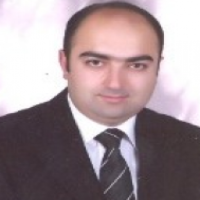
 0000-0002-7435-4130
0000-0002-7435-4130


 0000-0002-2897-9543
0000-0002-2897-9543


 0000-0001-9106-383X
0000-0001-9106-383X


 0000-0001-6943-2109
0000-0001-6943-2109
 0000-0002-5991-2173
0000-0002-5991-2173


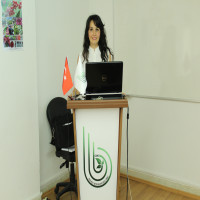

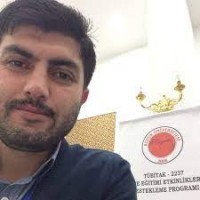
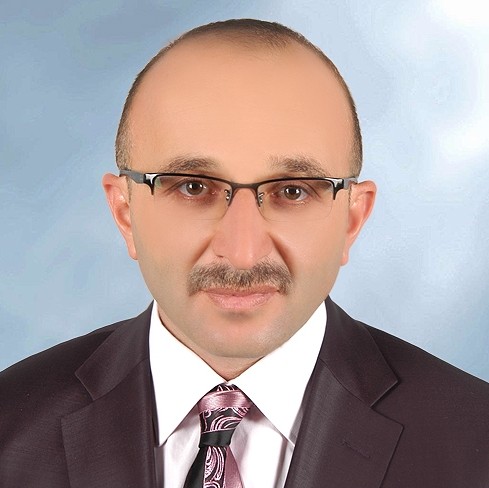
 0000-0001-9748-618X
0000-0001-9748-618X



 0000-0001-8053-5002
0000-0001-8053-5002
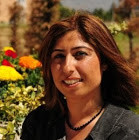

 0000-0001-9642-119X
0000-0001-9642-119X



 0000-0001-7345-938X
0000-0001-7345-938X


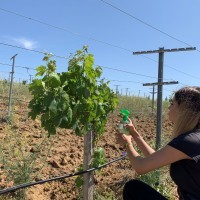

 0000-0002-9637-2479
0000-0002-9637-2479



 0000-0001-9334-8601
0000-0001-9334-8601

 0000-0003-3640-1474
0000-0003-3640-1474

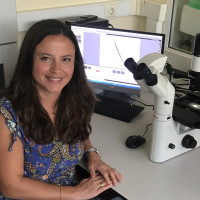



Aim & Scope
Turkish Journal of Agricultural and Natural Sciences is a peer reviewed journal which publishes original papers of research performed in agricultural studies. The journal is a forum in which basic and practical methods and techniques are presented, revealing accessible and practicable novel findings. Publishing language is Turkish and English. The journal does not accept review articles. Turkish Journal of Agricultural and Natural Sciences is published Four times a year ( January, April, July and October)
The journal is a forum in which basic and practical methods and techniques are presented, revealing accessible and practicable novel findings. Publishing language is Turkish and English. The journal does not accept review articles. Turkish Journal of Agricultural and Natural Sciences is published Four times a year ( January, April, July and October)
Author Guidelines
Author Guidelines
GENERAL FORMAT PROPERTIES
Articles submitted in English should be prepared using "Manuscript Templete".
PAGE FORMAT
The article text must be in 12 Point font size and Times New Roman font.
Page setup in A4 size; 2.5 cm space should be given at the margins of pages.
It should be prepared as a single column.
Manuscript should not exceed 17 pages.
Paragraph Format
In the indent and spacing section of paragraph tab:
Left and right section should be 6 pt (0,6 line)
Line spacing should be 1,15.
Author Names
Author names should certainly not be included in the manuscript word file without authors’ names.
Author names should be included in the manuscript word file with authors’ names.
Author surname be with UPPERCASE.
Need to Author position details: Prof, Dr etc. If the original article name is English, all of details must be English.
Need to Author adress details (University, faculty, departmeet etc.) If the article originallay is English, all of details must be English.
All authors must write E-mail adresses.
All authors must write an ORCID No. (Graduate students must also declare the ORCID No).
Title of The Manuscript
The title of the manuscript should be written in Turkish and English.
The title of the manuscript must be in 12 Point font size, Times New Roman font and Bold.
In the title of manuscript should be capitalized (first letter in each word) (except from the conjunctions such as and, with etc.)
The title of the article should be left aligned.
There should be a * postscript and explanation if the study is previously presented or composed out of a thesis or a project.
Main Section Headings
Main section headings (1. Introduction, 2. Material and Method, 3. Results and Discussion, 4. Conclusions) should be capitalized (first letter in each word).Main section headings should be written 0.5 paragraphs from the left. Main section headings should be numbered. Main section headings must be in 10 Point font size.
Subheading
Subheadings are capitalized (only first word is capitalized) and left justified 0.5 cm indented,bold and italik.; separated from the previous paragraph with a blank line.
2.1. Subsection title 1
2.1.1. Subsection title 2
2.1.1. Subsection title 3...
Table and Figure Headings
Table and Figure expressions are directly used as Table 1.1., Figure 1.1
Table and Figure headings’ should be only first word is capitalized and italics.
Table and Figure headings’ should be centered and bold.
Table headings should be above the table.
Figure headings should be under the figure.
All tables and figures must be referred to in the text (Table 1.1.).
Table 1. Title of the table
Figure 1. Title of the figure
Abstract and Özet (Turkish Abstract)
(Authors of non turkısh orıjın may submıt theır manuscrıpt wıth an abstract wrıtten ın englısh only...! )
Authors who are Turkish origin must write abstract in both English and Turkish.
The title of the Abstract and Özet must be in 12 Point font size, Should be left justified and Bold.
The article text must be in 10 Point font size and Times New Roman font.
The abstract should be min. 250 words- max. 400 words and line space should be 1,15.
Keywords
5-8 keywords should be given
Keywords must be in 9 Point font size
Keywords should be words different from the title words.
Keywords: Keywords1, Keywords2, Keywords3, Keywords4, Keywords5
Equations
Equations should be numbered consecutively throughout the paper and located at the right margin as in Equation (1) below.
Each equation should be referred to in the text.
Equations (Please use Equation Editor of Word!):
y_ijkl=μ+r_i+l_j+p_k+(rl)_ij+(rp)_ik+(lp)_jk+(rlp)_ijk+e_ijkl (Eq.1).
Units
Units of measurement should all be in SI units.
Use a period in decimal fractions (2.14 rather than 2,14).
Use (,) for thousands -1,230.6
Use " kg ha-1" not " kg/ha".
With space 4 h, 4 kg, 4 m, Without space 4o, 4%
Text
The article should include Introduction, Material and Method, Results and Discussion, Conclusion sections.
In the introduction; The importance of the subject should be explained with its place in the literature.
In the Method section, if a specific model is used, the model subdivision should include the Sample / Workgroup, Data Collection Tools, and Process subdivisions.
The materials and methods used in the research should be expressed clearly and understandably.
Results and discussion section; the results should be discussed with their place in the literature.
Table and Figure
Tables and figures should be shown in the text. It should not be given separately.
All tables and figures must be referred to in the text (Table 1.1.).
References
Both in the text and in the source books, the rules of writing specified in the book Publication Manual of American Psychological Association (APA) (6. edition) published by the American Psychological Association should be applied.
References will be prepared by Times News Roman and font 8. References in the text as author's family name should be followed by the year of the publication in parentheses (Mohsenin, 1970); (Muck and Holmes, 2000). Use "et al." after the first author's family name for citations with three or more authors (Savoie et al., 2004).
References should be arranged at chronologically. All references should be listed alphabetically on author's surnames and chronological. Names of journals should be in full titles rather than the abbreviations. All journal articles must include volume, number, and pages. For web pages, please write date of the available data.
Journal article:
Tan, F., Kayısoglu, B., Okur, E. (2018). Effects of compaction pressure on the temperature distribution in bunker type silage silo. Indian Journal of Animal Sciences 88 (1): 116–120
Thesis:
Mirik, M. (2005). Biberde bakteriyel leke etmeni Xanthomonas axonopodis pv. vesicatoria’nın tanılanması ve bitki büyüme düzenleyici rizobakteriler ile biyolojik mücadele olanakları. (Ph. D. Thesis) Cukurova University. The Institute of Natural Sciences, Adana, Turkey
Books:
Mohsenin, N.N. (1970). Physical Properties of Plant and Animal Materials. Gordon and Breach Science Publishers, New York
Conference Proceedings (Full papers):
Saglam, C., Tan, F. (2017). An Environmentally Friendly Method Of Fertilizer Application In Agriculture; Anhydrous Ammonia Application. International Conference on Environment and Natural Science. (ICENS). 9-10 September, P.7-9. Moscow, Russia.
Internet sources:
Anonymous, (2019). Food and Agriculture Organization of the United Nations (FAO), http://www.fao.org/site, (Accessed date: 13.11.2018)
References
Anonymous, (2019). Food and Agriculture Organization of the United Nations (FAO), http://www.fao.org/site, (accessed date: 13.11.2018)
Mirik, M. (2005). Biberde bakteriyel leke etmeni Xanthomonas axonopodis pv. vesicatoria’nın tanılanması ve bitki büyüme düzenleyici rizobakteriler ile biyolojik mücadele olanakları. (Ph. D. Thesis) Cukurova University. The Institute of Natural Sciences, Adana, Turkey
Mohsenin, N.N. (1970). Physical Properties of Plant and Animal Materials. Gordon and Breach Science Publishers, New York
Saglam, C., Tan, F. (2017). An Environmentally Friendly Method Of Fertilizer Application In Agriculture; Anhydrous Ammonia Application. International Conference on Environment and Natural Science. (ICENS). 9-10 September, P.7-9. Moscow, Russia.
Tan, F., Kayısoglu, B., Okur, E. (2018). Effects of compaction pressure on the temperature distribution in bunker type silage silo. Indian Journal of Animal Sciences 88 (1): 116–120.
Ethical Principles and Publication Policy
ETHICAL RULES
Ethical Principles and Publication Policy
ETHICS POLICY OF Turkish Journal of Agricultural and Natural Sciences (TURKJANS)
Publication Ethics for Turkish Journal of Agricultural and Natural Sciences (TURKJANS)
The publication process at Turkish Journal of Agricultural and Natural Sciences (TURKJANS) is the basis of the improvement and dissemination of information objectively and respectfully. Therefore, the procedures in this process improves the quality of the studies. Peer-reviewed studies are the ones that support and materialize the scientific method. At this point, it is of utmost importance that all parties included in the publication process (authors, readers and researchers, publisher, reviewers and editors) comply with the standards of ethical considerations. Turkish Journal of Agricultural and Natural Sciences (TURKJANS) expects all parties to hold the following ethical responsibilities.
The following ethical duties and responsibilities are written in the light of the guide and policies made by Committee on Publication Ethics (COPE) (http://publicationethics.org/files/u2/New_Code.pdf) .
Ethical Responsibilities of Authors
The authors who submit their manuscripts to Turkish Journal of Agricultural and Natural Sciences (TURKJANS) are expected to comply with the following ethical responsibilities:
• Author(s) must submit original studies to the journal. If they utilize or use other studies, they must make the in-text and end-text references accurately and completely.
• If the manuscripts submitted to be published are subject of conflicting interests or relations, these must be explained.
• During the review process of their manuscripts, author(s) may be asked to supply raw data. In such a case, author(s) should be ready to submit such data and information to the editorial and scientific boards.
• Author(s) should document that they have the participants' consent and the necessary permissions related with the sharing and research/analysis of the data that are used.
• Author(s) bears the responsibility to inform the editor of the journal or publisher if they happen to notice a mistake in their study which is in early release or publication process and to cooperate with the editors during the correction or withdrawal process.
• Authors cannot submit their studies to multiple journals simultaneously. Each submission can be made only after the previous one is completed. A study published in another journal cannot be submitted to Journal of Tekirdag Agricultural Faculty.
• Author responsibilities given in a study (e.g.: adding an author, reordering of author names) whose review process has begun cannot be changed.
Ethical Responsibilities of Editor in Chief and Section Editors
The editor in chief and section editors of Journal of Tekirdag Agricultural Faculty should hold the following ethical responsibilities that are based on the guides "COPE Code of Conduct and Best Practice Guidelines for Journal Editors" and "COPE Best Practice Guidelines for Journal Editors" published as open Access by Committee on Publication Ethics (COPE).
General duties and responsibilities
Editors are responsible for each study published in Journal of Tekirdag Agricultural Faculty. In this respect, the editors have the following roles and responsibilities:
• Making efforts to meet the demand for knowledge from readers and authors,
• Ensuring the continuous development of the journal,
• Managing the procedures aimed to improve the quality of the studies published in the journal,
• Supporting freedom of expression,
• Ensuring academic integrity,
• Following the procedures without making concessions on intellectual property rights and ethical standards,
• Being transparent and clear in issues that require correction or explanation.
Relationships with Readers
Editors must make decisions taking into consideration the knowledge, skills and expectations of all readers, researchers and practitioners need. They must also ensure that the published studies contribute to literature and be original. Moreover, they must take notice of the feedback received from researchers and practitioners and provide explanatory and informative feedback.
Relationships with Authors
Editors have the following duties and responsibilities in their relations with authors:
• Editors must make positive or negative decisions about the studies' importance, originality, validity, clarity in wording and suitability with the journal's aims and objectives.
• Editors must accept the studies that are within the scope of publication into pre review process unless there are serious problems with the study.
• Editors must not ignore positive suggestions made by reviewers unless there are serious problems with the study.
• New editors, unless there are serious issues, must not change the previous editor's decisions about the studies.
• "Blind Review and Review Process" must be published and editors must prevent possible diversions in the defined processes.
• Editors must publish an "Author's Guide" that is comprehensive enough in answering queries by authors. This guide must be updated regularly.
• Authors should be provided with explanatory and informative feedback.
Relationships with Reviewers
Editors have the following duties and responsibilities in their relations with reviewers:
Editors must;
• choose reviewers according to the subject of the study.
• provide the information and guidance reviewers may need during the review process.
• observe whether there are conflicting interests between reviewers and authors.
• keep the identities of reviewers confidential in blind review.
• encourage the reviewers to review the manuscript in an unbiased, scientific and objective tone.
• evaluate reviewers regularly based on criteria like performance and timing.
• develop practices and policies that increase the performance of reviewers.
• take necessary steps to update the reviewer pool continuously and dynamically.
• prevent unkind and unscientific reviews.
• make effort to ensure the reviewer pool has a wide range.
Relationships with the Adisory Board
Editors must make sure that the members of the advisory board follow the procedures in accordance with the publication policies and guidelines, and must inform the members about the publication policies and developments. The editors must also train new members of the advisory board and provide the information they need.
Moreover, editors must
• ensure that the members of the advisory board review the manuscripts in an unbiased and independent manner.
• select the new members of the advisory board from those who can contribute to the journal and are qualified enough.
• send manuscripts for review based on the subject of expertise of the advisory board members.
• regularly communicate with the advisory board.
• arrange regular meetings with the advisory board for the development of publication policies and the journal.
Relationships with the Journal's Owner and Publisher
The relationship between the editors (Editor in chief and section editors) and publisher is based on the principle of the independency of editors. All the decisions made by the editors are independent of the publisher and the owner of the journal as required by the agreement made between editors and publisher.
Editorial and Blind Review Processes
Editors are obliged to comply with the policies of "Blind Review and Review Process" stated in the journal's publication policies. Therefore, the editors ensure that each manuscript is reviewed in an unbiased, fair and timely manner.
Quality Assurance
Editors must make sure that articles in the journal are published in accordance with the publication policies of the journal and international standards.
Protection of Personal Information
Editors are supposed to protect the personal information related with the subjects or visuals in the studies being reviewed, and to reject the study if there is no documentation of the subjects' consent. Furthermore, editors are supposed to protect the personal information of the authors, reviewers and readers.
Encouraging Ethical Rules and Protection of Human and Animal Rights
Editors are supposed to protect human and animal rights in the studies being reviewed and must reject the experimental studies which do not have ethical and related committee’s approval about the population given in such studies.
Precautions against possible Abuse and Malpractice
Editors are supposed to take precautions against possible abuse and malpractice. They must conduct investigations meticulously and objectively in determining and evaluating complaints about such situations. They must also share the results of the investigation.
Ensuring Academic Integrity
Editors must make sure that the mistakes, inconsistencies or misdirections in studies are corrected quickly.
Protection of Intellectual Property Rights
Editors are responsible for protecting the intellectual property rights of all the articles published in the journal and the rights of the journal and author(s) in cases where these rights are violated. Also, editors must take the necessary precautions in order to prevent the content of all published articles from violating the intellectual property rights of other publications.
Constructiveness and Openness to Discussion
Editors must
• pay attention to the convincing criticism about studies published in the journal and must have a constructive attitude towards such criticism.
• grant the right of reply to the author(s) of the criticized study.
• not ignore or exclude the study that include negative results.
Complaints
Editors must examine the complaints from authors, reviewers or readers and respond to them in an explanatory and enlightening manner.
Political and Economic Apprehensions
Neither the owner of the journal, publisher or any other political or economical factor can influence the independent decision taking of the editors.
Conflicting Interests
Editors, acknowledging that there may be conflicting interests between reviewers and other editors, guarantee that the publication process of the manuscripts will be completed in an independent and unbiased manner
Ethical Responsibilities of Reviewers
The fact that all manuscripts are reviewed through "Blind Review" has a direct influence on the publication quality. This process ensures confidentiality by objective and independent review. The review process at Journal of Tekirdag Agricultural Faculty is carried out on the principle of double blind review. Reviewers do not contact the authors directly, and the reviews and comments are conveyed through the journal management system. In this process, the reviewer views on the evaluation forms and full texts are assigned to the author(s) by the editor. Therefore, the reviewers doing review work for Journal of Tekirdag Agricultural Faculty are supposed to bear the following ethical responsibilities:
Reviewers must
• agree to review only in their subject of expertise.
• review in an unbiased and confidential manner.
• inform the editor of the journal if they think that they encounter conflict of interests and decline to review the manuscript during the review process.
• dispose the manuscripts they have reviewed in accordance with the principle of confidentiality after the review process. Reviewers can use the final versions of the manuscripts they have reviewed only after publication.
• review the manuscript objectively and only in terms of its content and ensure that nationality, gender, religious and political beliefs, and economic apprehension do not influence the review.
• review the manuscript in a constructive and kind tone, avoid making personal comments including hostility, slander and insult.
• review the manuscript they have agreed to review on time and in accordance with the ethical rules stated above.
Ethical Responsibilities of Publisher
Turkish Journal of Agricultural and Natural Sciences (TURKJANS), is a non-profit, higher education foundation working for the good of the public. Turkish Journal of Agricultural and Natural Sciences (TURKJANS) Editorial Board is conscious of the fact that they must observe the ethical responsilities below and act accordingly:
Price Policy
For the articles published in the Turkish Journal of Agriculture and Natural Sciences, no fee is paid to the author and no fee is charged from the author. Our journal does not charge any fees for article submission, article-editing processes or publication fees (page or color fees). Articles are freely available in print and digital.

